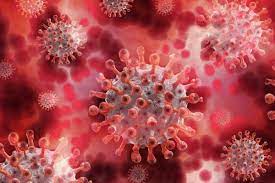After contracting COVID-19, some individuals continue to encounter health issues. Recognise the potential symptoms and risk factors associated with the post-COVID-19 syndrome.
Most those infected with coronavirus disease 2019 (COVID-19) recover within a few weeks. However, some individuals, even those with minor forms of the condition, may experience long-lasting symptoms. These persistent health issues are also known as a post-COVID-19 syndrome, post-COVID conditions, long COVID-19, long-haul COVID-19, and post-acute sequelae of SARS COV-2 infection (PASC).
What is a post-COVID-19 syndrome, and what is its prevalence?
Post-COVID-19 syndrome is characterised by many new, recurring, or persistent symptoms that individuals suffer more than four weeks after contracting COVID-19. In some individuals, the post-COVID-19 syndrome might linger for months or years or result in impairment.
According to research, between one month and one year after contracting COVID-19, one in five individuals ages 18 to 64 has at least one medical issue that may be attributable to COVID-19. One in four older adults has at least one medical problem that may be caused by COVID-19.
What symptoms are associated with post-COVID-19 syndrome?
The most often reported post-COVID-19 syndrome symptoms to include:
- Fatigue
- Symptoms that worsen during physical or mental exertion
- Fever
- Lung (respiratory) symptoms include breathing trouble, shortness of breath, and cough.
How Does Coronavirus Infection Affect Your Body?
A virus infects and enters the body through healthy cells. The pathogen travels throughout your body by duplicating itself. The virus enters the human body mainly through the angiotensin-converting enzyme-2 (ACE2) and transmembrane serine protease 2 (TMPRSS2) receptors and nasal cavity cells of the respiratory system’s NT, and then proceeds gradually into the lungs to establish infection.
Given the indisputable relationship between viral and bacterial strain co-infections and the severity of respiratory disease, there is an urgent need to understand better how SARS-CoV-2 interacts with the human microbiome in the respiratory tracts to enable co-infection. With its spike proteins, the coronavirus binds to receptors on healthy cells, notably in the lungs. Once inside, the coronavirus seizes control of healthy cells and gradually kills some of them.
ORGAN DAMAGE CAUSED BY COVID-19
COVID-19 is a disease that primarily affects the lungs, although it can also affect other organs, including the kidneys, brain, and heart. Post-COVID, organ damage may cause long-term health issues. Some people may get long-term breathing difficulties, heart troubles, chronic kidney damage, a stroke, and Guillain-Barré syndrome, a disorder that causes temporary paralysis.
Some adults and children acquire the multisystem inflammatory syndrome after contracting COVID-19. In this scenario, some organs and tissues become substantially inflamed.
COVID-19 VARIANTS
The numerous thousands of SARS-CoV-2 variations are classified into clades or lineages. Currently, the WHO-convened specialist committee suggests labelling variants with Greek Alphabets, such as Alpha, Beta, Delta, and Gamma, since it will be more accessible and practical to discuss with non-scientific audiences. For more information visit our website.
Listed here are the organs most affected by COVID-19, both at the time of infection and in terms of long-term repercussions.
1. Heart
Among the additional common COVID-19 symptoms are:
- Palpitations,
- Fatigue
- Chest pain
This is because COVID-19 also affects the heart and has a widespread impact on the heart of COVID-19 patients. The accumulation of blood clots in the heart increases the risk of heart attacks and strokes. Over time, it can potentially produce cardiac obstructions that are troublesome. Patients with COVID-19 should therefore contact a cardiologist, mainly if they have related conditions such as high cholesterol, diabetes, etc.
2. Liver
Infected individuals with COVID-19 typically experience liver dysfunction. After recovering from COVID-19, there have been instances of an increase in enzyme levels. It has the potential to result in liver dysfunction. The most evident and widespread symptom of this condition is stomach issues.
Not only can the coronavirus damage the liver, but so can the large doses of medication administered during treatment. If there are underlying issues, it is also advisable to be cautious with drugs and consult a physician.
3. Lungs
As COVID-19 is primarily a respiratory illness, it is not surprising that it affects the lungs. Breathlessness and chest pain are two of the most typical symptoms of COVID-19. These symptoms persist in COVID-19 patients after the initial infection has resolved.
This is due to the damage caused by the coronavirus to the lungs and other tissues, which threatens respiratory health. This is why it’s essential to obtain adequate rest while you have COVID-19 and afterwards so your respiratory system can recover adequately.
4. Brain
Contrary to widespread belief, COVID-19 can also affect the patient’s brain. This applies to mental health concerns, which are formidable in their own right, and other issues such as inflammation. This can cause seizures in life-threatening conditions, cognitive fog, dizziness, and chronic headaches, among other standard and seemingly trivial symptoms. Constant fatigue is a long-term impact of COVID-19, which can significantly impair daily life functions.
How Else Does COVID-19 Affect the Body?
Some persons also exhibit the following symptoms:
- Pinkeye
- Rashes
- Liver problems or damage
- Heart difficulties
- Kidney damage
- Dangerous blood clots in the legs, lungs, and arteries.
- Some clusters may result in a stroke.
IMMUNE REACTION
According to experts, the virus may link a weakened immune response outside the respiratory tract to less efficient virus clearance in organs other than the lungs. Some researchers assert that SARS-CoV-2 RNA was present in the brains of patients who died more than a month after the onset of symptoms.
Understanding neurocognitive impairment, sometimes known as “brain fog,” and other neuropsychiatric manifestations of chronic COVID can be enhanced by focusing on distinct brain regions. SARS-CoV-2 should be regarded as a systemic virus that can be eliminated in some individuals but persists in others for weeks or months, resulting in protracted COVID, a complicated systemic disease.
Read Also: What is the best option for summer home flooring from Healthy Home Flooring?



















